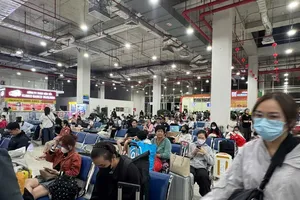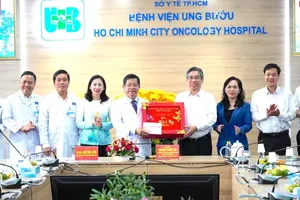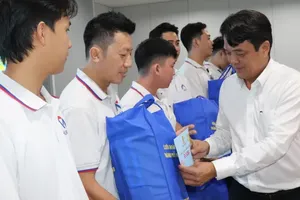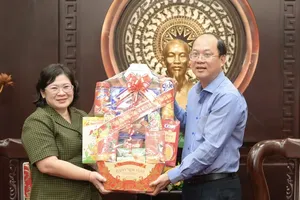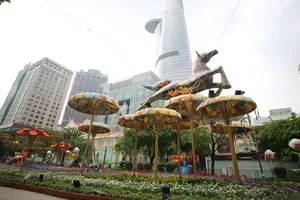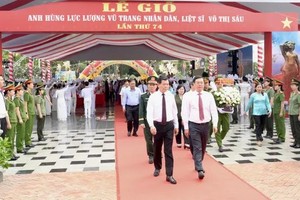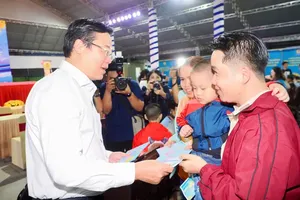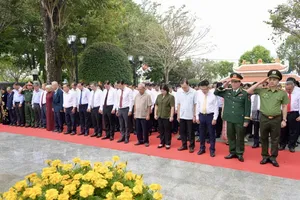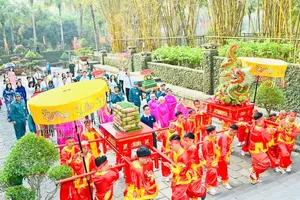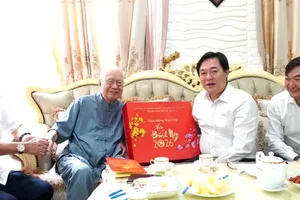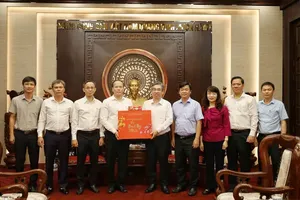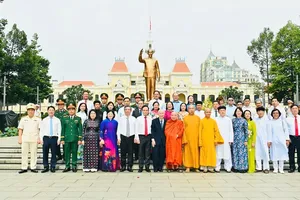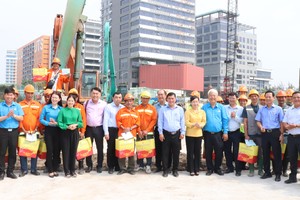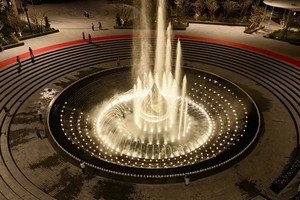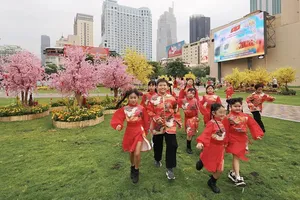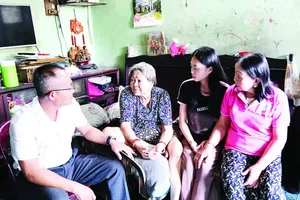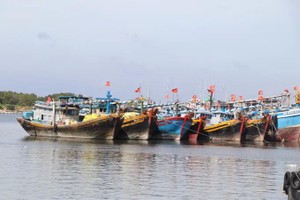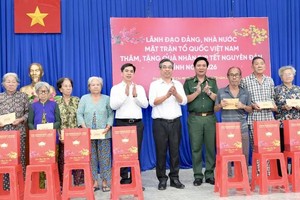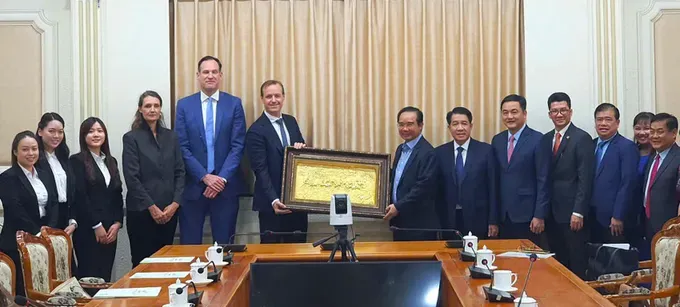
HCMC promotes soft power via mechanisms of international collaboration
During the past term, Ho Chi Minh City’s external relations have expanded comprehensively, contributing significantly to socio-economic development and reinforcing the international community’s confidence in a dynamic and open metropolis.
According to the Political Report of the 10th HCMC Executive Party Committee, the city’s external affairs have been coordinated across three key channels such as Party diplomacy, state diplomacy, and people-to-people diplomacy, spanning politics, economics, culture, communications, and overseas Vietnamese affairs.
In Party diplomacy, the city has consistently adhered to the national foreign policy of independence, self-reliance, peace, friendship, cooperation, and development. By promoting diversification and multilateral engagement, Ho Chi Minh City continues to pioneer the implementation of the Party’s diplomatic direction at the local level.
Between 2020 and 2025, the city’s state diplomacy has advanced in both scope and quality. Ho Chi Minh City maintains friendly ties with 58 localities worldwide and plays an active role in multilateral cooperation mechanisms such as the C40 Cities Climate Leadership Group, the ASEAN Smart Cities Network, and the World Urban Forum. Through these platforms, the city has gained valuable experience in urban planning, flood control, sustainable development, and climate adaptation, a key steps toward modern urban governance.
The city has also strengthened its strategic connections by signing cooperation agreements with localities in Vietnam’s key partner countries and organizing hundreds of investment, trade, and tourism promotion events. These efforts have reinforced Ho Chi Minh City’s leadership role in local-level international integration.
In 2024–2025, following its administrative restructuring into a unified megacity, Ho Chi Minh City is entering a new development phase as an increasingly attractive destination for global investors. Foreign business associations have praised the city’s expanding potential for cooperation.
Executive Director Travis Mitchell of the American Chamber of Commerce in Vietnam (AmCham) noted that the administrative restructuring of Ho Chi Minh City presents significant investment opportunities, with expectations for a leaner, faster, and more efficient government, as well as simplified tax and customs procedures. American companies view Ho Chi Minh City as the new hub for regional supply chains, committed to a transparent and sustainable business environment.
AmCham currently represents more than 550 corporate members and over 2,500 individual members.
President Thibaut Giroux of the French Chamber of Commerce and Industry (CCIFV) said that with more than 300 member enterprises, CCIFV is expanding its presence in Ho Chi Minh City in strategic areas such as healthcare, industry, infrastructure, and urban planning.
People-to-people diplomacy is considered a cultural bridge, enhancing understanding and cooperation between Ho Chi Minh City and localities around the world. Ho Chi Minh City's people-to-people diplomacy in the past 5 years has been actively and effectively implemented, contributing to strengthening the friendly relations between the people of Vietnam and other countries. The Ho Chi Minh City Union of Friendship Organizations (HUFO) continues to affirm its role as a ‘bridge’ in peace, solidarity, and international cooperation.
According to Vice President and General Secretary of HUFO Ho Xuan Lam, HUFO's activities closely follow the motto "Proactive - Flexible - Creative - Effective", closely linked to the orientation of people-to-people diplomacy in the new situation. HUFO also closely coordinates with the Consulate General, departments, agencies and sectors of the city in commemorative activities, exchanges and support for people-to-people diplomacy.
These programs contribute to promoting the image of a peaceful, dynamic and deeply integrated Vietnam. In addition to cultural diplomacy activities, HUFO and its member friendship associations actively connect overseas Vietnamese and non-governmental organizations, creating conditions to attract international resources for education, health, environmental protection and humanitarian projects.
Ho Chi Minh City is also expanding cooperation with sister cities, strengthening the friendship network with international friends, promoting the image of "Ho Chi Minh City - City for Peace".
Global vision
Amid many fluctuations in the globe, maintaining cooperation and spreading the spirit of international friendship also helps Ho Chi Minh City maintain a stable environment, attracting more external resources to serve development.
These results show that foreign affairs is no longer a single activity, but has become a pillar along with national defense and security, ensuring stability and sustainable growth. However, city leaders also recognize that the effectiveness of international cooperation in some areas is still not high, as many agreements stop at the framework and foreign affairs human resources have not met the requirements of increasingly deep integration. These limitations need to be overcome in the coming period.
Entering the 2025–2030 term, the draft documents of the first Ho Chi Minh City Party Congress identifies foreign affairs as a strategic pillar, closely tied to the city’s development aspirations and long-term vision toward 2045. Ho Chi Minh City aims to elevate its international standing, striving to become a smart, civilized, and modern metropolis by 2030, with a leading role in Southeast Asia in economy, finance, trade, education, healthcare, and science and technology. Looking ahead to 2045, the city envisions itself as a major hub of Asia - a green, dynamic, and among the world’s most livable global cities.
To realize that vision, Ho Chi Minh City identifies foreign affairs and international integration as key solutions, paving the way for attracting resources, transferring technology and developing innovation. Ho Chi Minh City will expand its market, connect to the global production chain, increase the attraction of high-quality investment, and make use of international talents and experts to develop a high-tech industrial ecosystem, digital economy and green economy.
At the same time, Ho Chi Minh City will make the most of the special mechanisms and policies issued by the Central Government for Ho Chi Minh City after administrative reorganization, turning geographical advantages, population and resources into leverage for integration. The foreign affairs staff will be professionally trained, knowledgeable about international law and culture, and capable of negotiating, promoting and advertising at the regional level.
Therefore, foreign affairs is not only a connecting channel but also a soft power to promote development. When international cooperation is associated with innovation and digital transformation, Ho Chi Minh City will truly become a "global city".
